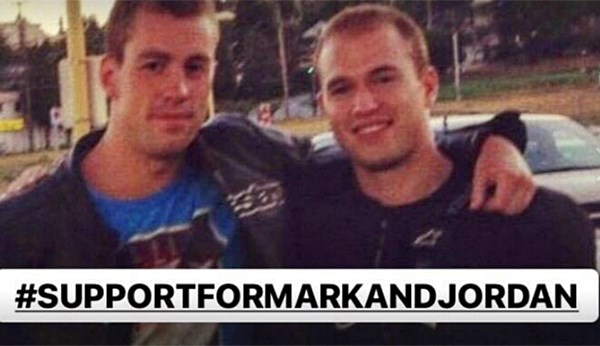The families of police officers Mark Simms and Jordan Long are hoping for swift justice after learning that the men’s nine-month ordeal will continue in Cuba because prosecutors are appealing their acquittal in a sexual assault case.
In a Facebook post to supporters of Simms, a Vancouver police officer, and Long, who is with Port Moody Police Department, the family said it learned that the prosecution will appeal the case, delaying the men’s return.
And even if they return home exonerated by the Cuban justice system, the two could still face an investigation by the Office of the Police Complaints Commissioner.
A spokesperson from the OPCC said while the case has been opened at the request of the VPD and PMPD, there won’t be any investigation until the officers’ legal issues have been resolved in Cuba.
“For us, the next steps would be whenever these offers return back to the jurisdiction where we have authority, we will try to obtain more information,” said Rollie Woods, the deputy police complaint commissioner.
It’s possible that an investigation could take place even if the appeal is turned down but would depend on the OPCC receiving more details in the case to see if further investigation is warranted.
The OPCC’s job is to investigate complaints in situations where a police officer has done something either on or off duty to discredit the police department, and as yet no information has come to light.
“Our role is in providing oversight of allegations of misconduct. We never had a complaint from anyone,” Woods said, and the woman who made the allegations has not responded to efforts by the OPCC to contact her.
Then there are the additional challenges of obtaining records and evidence, a simple procedure when the case is in B.C. Woods said getting appropriate records and documents could be challenging because the Cuban legal system is different from Canada's.
“We don’t know whether the records will exist and, if they do, they’ll be in Spanish. We’ll have to get them translated. It’s all up in the air. We are waiting what the outcome of what the process will be in Cuba, then we will decide what the next steps will be.”
It’s also not known how long the officers will be detained in Cuba because while the family states that an appeal by the prosecution is common, the procedure and the time it takes are not known.
“We expect that truth and justice will continue to prevail as this process unfolds,” the Facebook post stated.
The comments come as the two men were acquitted of sexual assault by a panel of five female judges, according to the Facebook post.
Media reports have stated the two were on holiday in Veradero, Cuba when a 17-year-old Ontario tourist made the allegations.
Their families have maintained the pair are innocent.
In a Facebook post Monday, the families of Long and Simms stated the following:
“We expect the very highest levels of the government of Canada to take action and work collaboratively with Cuban authorities to expedite this process so that two innocent Canadian police officers, who risk their lives daily to serve the public, are rightfully able to return home without further delay. We also look forward to a prompt OPCC investigation so that the truth of this matter can be fully revealed to Canadian authorities and the Canadian public. Our thoughts are with genuine victims of sexual assault whose experiences are undermined by false accusations such as this.”
Consular services have been provided to the two, according to an email to The Tri-City News from Global Affairs Canada.
Meanwhile, the PMPD is not releasing any information about the Port Moody officer, including his status with the department, citing lack of information from Cuban authorities and privacy issues.



